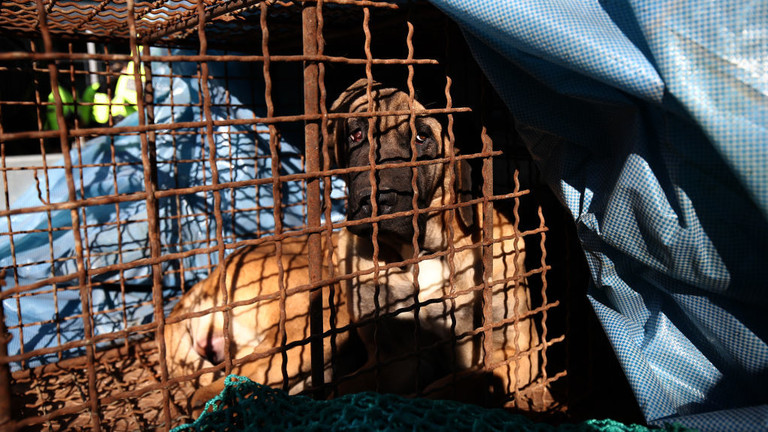Headlines
South Korea Unveils New Transition Plan for Dog Meat Farmers

In a major policy shift, South Korea introduces a new plan to support dog meat farmers as the country moves toward phasing out the controversial practice. Learn more about the government’s initiative and its impact on the farming industry.
The South Korean government has announced that it will compensate farmers affected by an impending ban on breeding and selling dog meat for consumption. But farmers have rejected the proposal, calling the ban a “barbaric act.”
In January, South Korea’s parliament passed a law banning the breeding and sale of dog meat by 2027, with fines of up to 30 million won ($22,800) or three years in prison. The ban has been strongly opposed by dog breeders, who called the law a “violent barbaric act that strips individuals of their right to food,” and rioted outside the government building before the vote last December.
On Thursday, the country’s Agriculture Ministry announced that farmers affected by the ban would receive payments ranging from 225,000 won ($170) to 600,000 won ($450) per dog if they agree to close their farms early, the Associated Press reported.
But farmers’ unions rejected the offer, demanding 2 million won (about US$155,000) per dog.
Eating dog meat is considered barbaric in many parts of the world, but it has been a common practice in Korea for centuries. The practice has recently become less popular among younger generations, but still about one million dogs are slaughtered for meat each year, according to the Korea Dog Meat Association.
READ ALSO: North Korean Soldier Defects to South Korea: Report
The association said the ban would affect 3,000 restaurants and about 3,500 farms where some 1.5 million dogs are kept. According to April 2022 statistics from the Ministry of Agriculture, the numbers are 1,600 restaurants, 1,100 farms and 570,000 dogs.
Animal rights groups have called for such a ban for decades, but a spokesman for the International Korean Humane Society told The Associated Press that making payments could lead farmers to “breed more dogs to get more money from the program.” The puppies will be born in Leiden. ”
The Korea Animal Welfare Association has called on local governments to strictly monitor farms to prevent them from breeding any more dogs for compensation purposes.
Once the ban comes into force, the Ministry of Agriculture will encourage people to adopt dogs from closed farms in order to limit the number of euthanasia operations.
